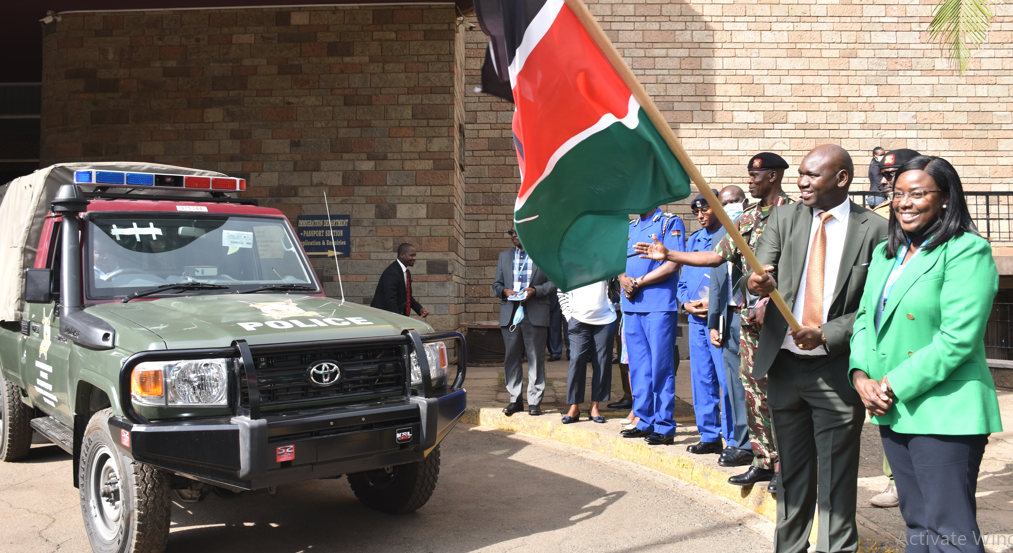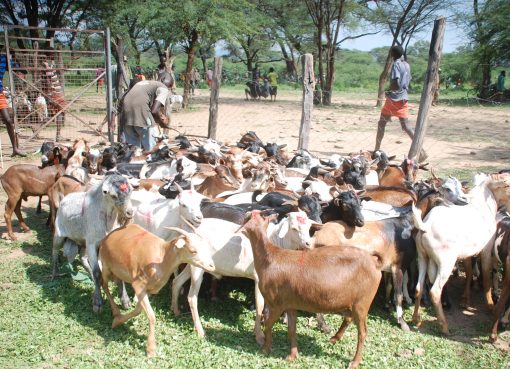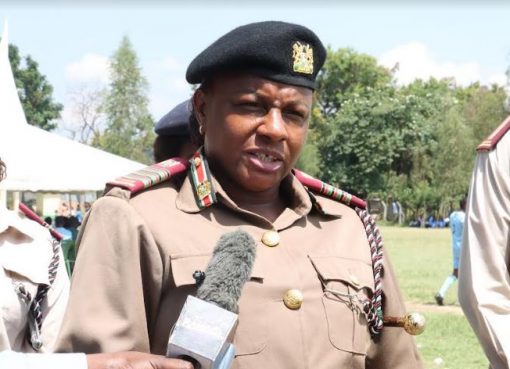The United Nations High Commissioner for Refugees (UNHCR) has donated 15 brand new land Cruiser vehicles to the government to support police in security operations in Dadaab and Kakuma refugee camps and the environs.
Flagging-off the vehicles today at Nyayo House building to the two areas to be used by the National Police Service and Administration police, the Principal Secretary for Citizen Services Amb. Julius Bitok said seven vehicles will operate in Daadab while eight will be stationed at Kakuma to support police in maintaining security at the camps and their environs.
Amb. Bitok said the government is currently taking care of around 571, 000 refugees whom he said came to Kenya due to the ravaging drought in their countries.
He said the process of repatriating refugees back to their countries is still on-going, and added that the government is using the strategy of encouraging and requesting the refugees to return to their country.
“We are adopting a master plan that will address how the refugees can be decongested once and for all,” said the PS.
Amb. Bitok who thanked UNHCR for donating the vehicles noted that of late, the number of refugees coming into the country from South Sudan to Kakuma refugee Camp and Somalia to Dadaab has been increasing, thereby raising concerns.
“We are doing everything possible to manage the increasing numbers of the refugees and to contain a recent cholera outbreak at the Daadab camp,” he stated.
The PS who handed over the car keys to David Njagi, Commissioner of Police, Director Administration, Planning and Finance at the National Police Service and Edward Achola, Chief Transport Officer from the Administration Police Service disclosed that the Kenya government is working with neighbouring countries to ensure that any form of conflict is dealt with.
Speaking at the event, the UNHCR Country Representative, Caroline Van Buren attributed the rising number of refugees to drought.
She said that the Kenya government’s encampment approach to have a settlement camp where refugees can live side by side with communities will involve the refugees in economic activities.
“In the settlement camps, the refugees will be integrated into the host community. Their inclusion will involve them in paying taxes and participating in economic activities,” said Buren.
She also appreciated the Kenya government for generously hosting the refugees for years.
By Bernadette Khaduli




